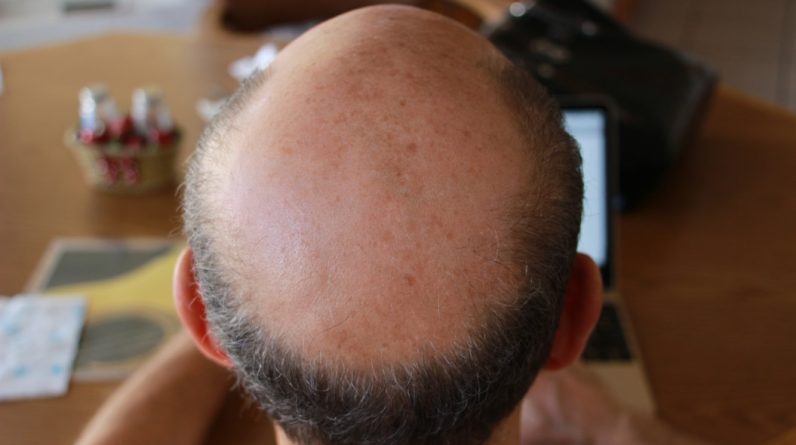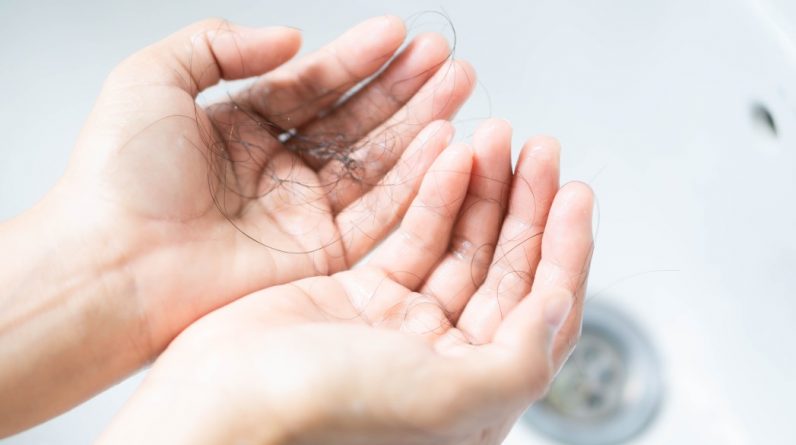
It doesn’t matter who you are. Anyone, young or old, rich or poor, can become bald. We usually think of men as being the victims of balding, but women and even some children struggle with the problems it causes, too. Losing hair as we age is a natural phenomenon, but for most people balding is presents a social stigma that they’d rather not face. In order to prevent premature balding you need to eat a healthy diet, practice good hygiene, and get plenty of sleep. Even so you may find yourself dealing with a substantial hair loss and looking for products that will prevent and even reverse it.
You need to use caution when purchasing anti-hair-loss products. You will notice that every product you can buy will guarantee you 100% that it will take care of your hair loss and help you grow a thick, healthy head of hair. It sounds great, doesn’t it? But stop and take a minute to think about it. If these products really worked the way they say they do, you wouldn’t still see so many people fighting baldness and thinning hair. Every day hundreds of people spend money on products that are absolutely worthless, and if you don’t want to become a victim the same type of frauds, you need to seek professional advice.
You can’t believe everything you read about hair loss products, because most of it is written solely to entice customers and take their money. Even if a product claims to have been clinically-proven and the advertising is filled with glowing testimonials from medical professionals, you have to be wary. Unfortunately, hundreds of people fall for these gimmicks and end up paying for products that do them absolutely no good.
Even customer feedback forums can’t help you much in finding hair loss products that are going to work for you, because what works for one person doesn’t necessarily work for all. Many have found that prescription hair loss treatments are far superior to over-the-counter brands.
How much do you really know about hair loss products? Most likely you don’t know a lot, because most of what you’ve heard was nothing but propaganda. Any time you’re experiencing excessive hair loss, you need to have your condition checked by your doctor. This will end up being far less expensive than it will be to try product after product with no success. Your doctor can pinpoint what’s causing your hair loss and also help you get on track in solving the problem.
A clinical diagnosis often points to something as simple as a poor diet as the cause of the hair loss. Poor diet causes a deficiency in the vitamins and minerals the body needs to function properly. Other causes of hair loss include stress, medications, and lack of sleep. Therefore, it’s necessary to identify what’s causing you to lose your hair before you can take steps to correct the habits that are at fault.
There are many herbal hair loss products available, and many people are attracted to them because they think there will be no side effects. Unfortunately, this is no more than an old wives’ tale, because some herbal remedies do have serious side effects. As far as being effective products, herbal shampoos and conditioners are no more reliable than most other over-the-counter products when it comes to regenerating lost hair. Once again, before you spend your money, go spend some time visiting with your physician.
Some of the products that are available actually have adverse effects instead of producing the desired results. For example, you may get hold of a product that will cause hair to grow in unwanted places on your body, such as on your upper lip. By talking to your doctor you can learn the causes of hair loss and help protect yourself from these horrible products.
There are 9 things you need to know in order to deal successfully with hair loss problems. They are:
1. Know the different ways of stopping hair loss and stimulating hair growth.
2. Understand how to increase the life of your hair cells and maintain healthy follicles.
3. Get to know your body well, because internal factors can cause thinning hair.
4. Be wary of new products that make outlandish promises. If you try a new product and think it’s causing problems, stop using it immediately.
5. Develop a lifestyle that is conducive to healthy hair.
6. Become familiar with the methods of keeping your hair healthy and, thereby, keeping it longer.
7. Realize that some hair loss is genetic. Looking at your older relatives can help you understand inherited traits you may be dealing with.
8. Hair loss has long been associated solely with men. Now that public awareness has caught onto the fact that it’s also a problem for women, products are being developed to help them regenerate hair, too.
9. Serious health issues may be causing your hair loss. Excessive loss of hair can be indicative of health conditions such as high blood pressure and heart disease.





